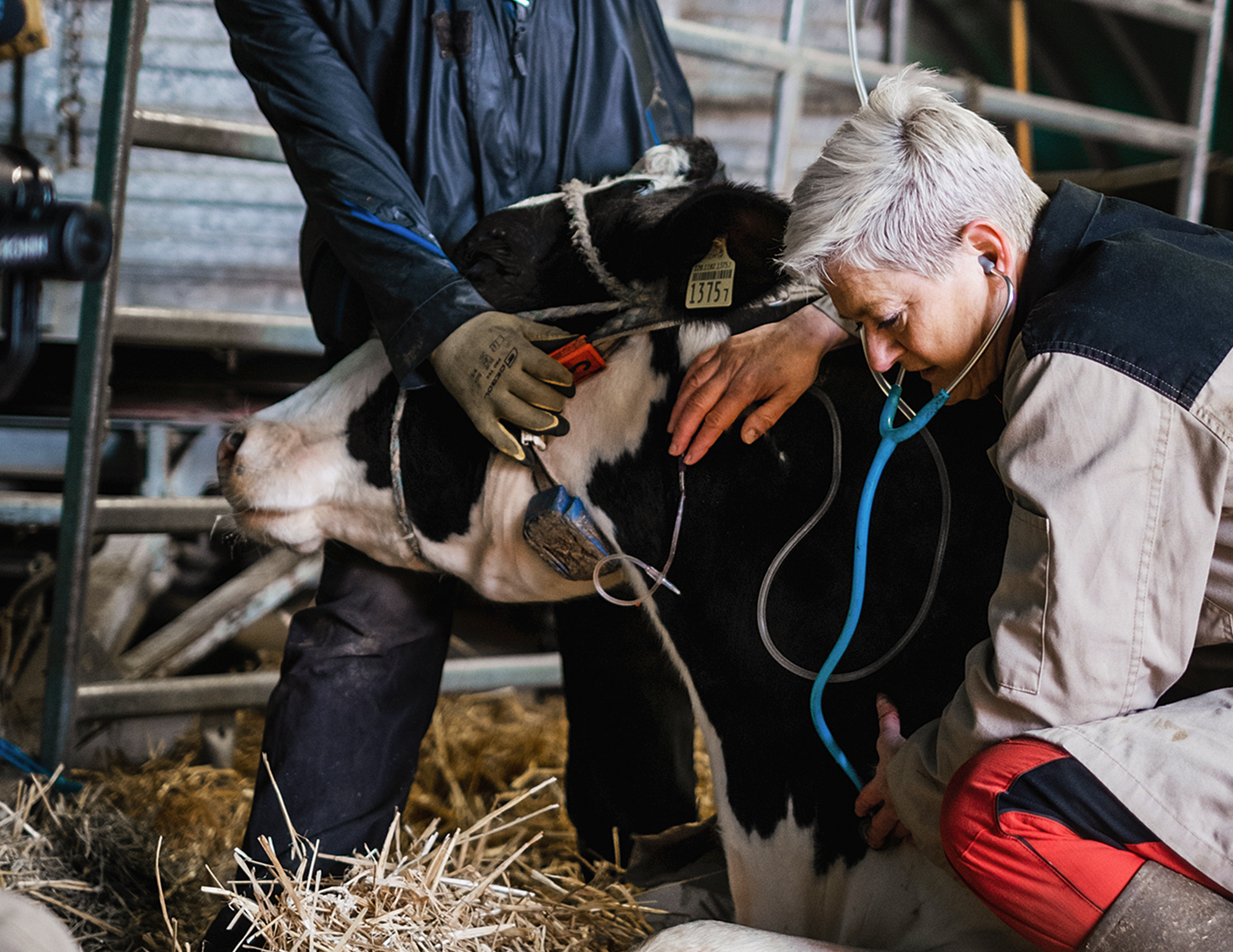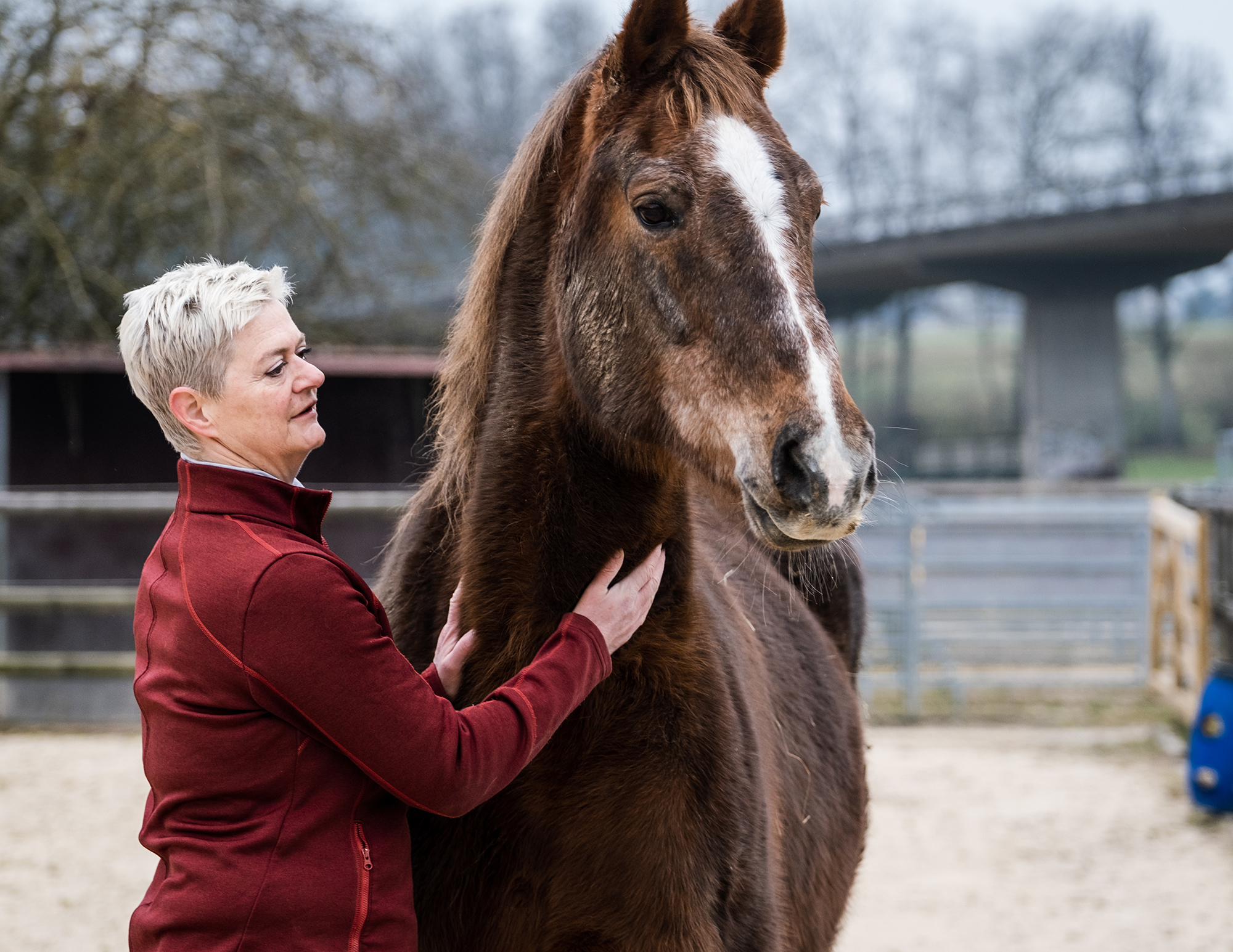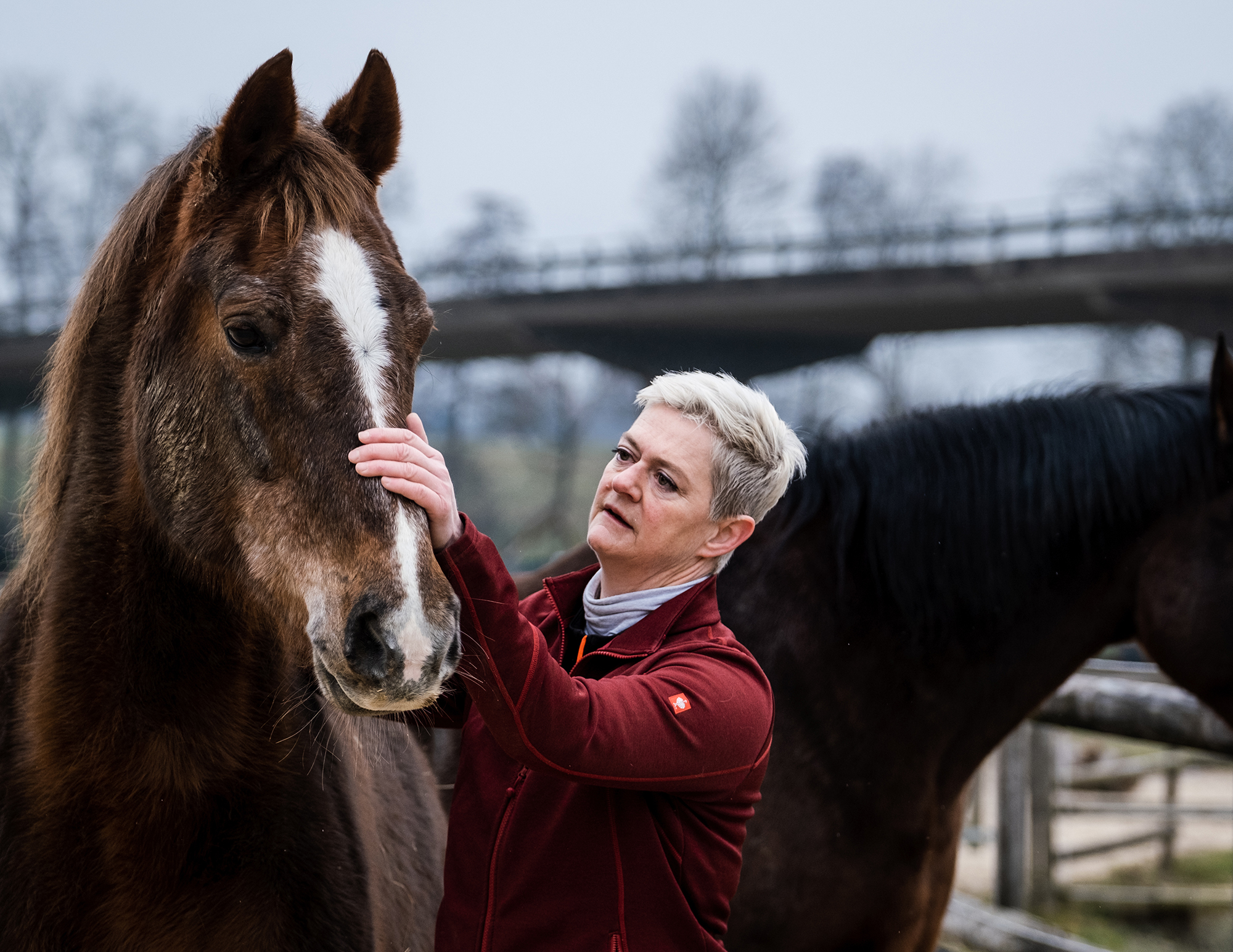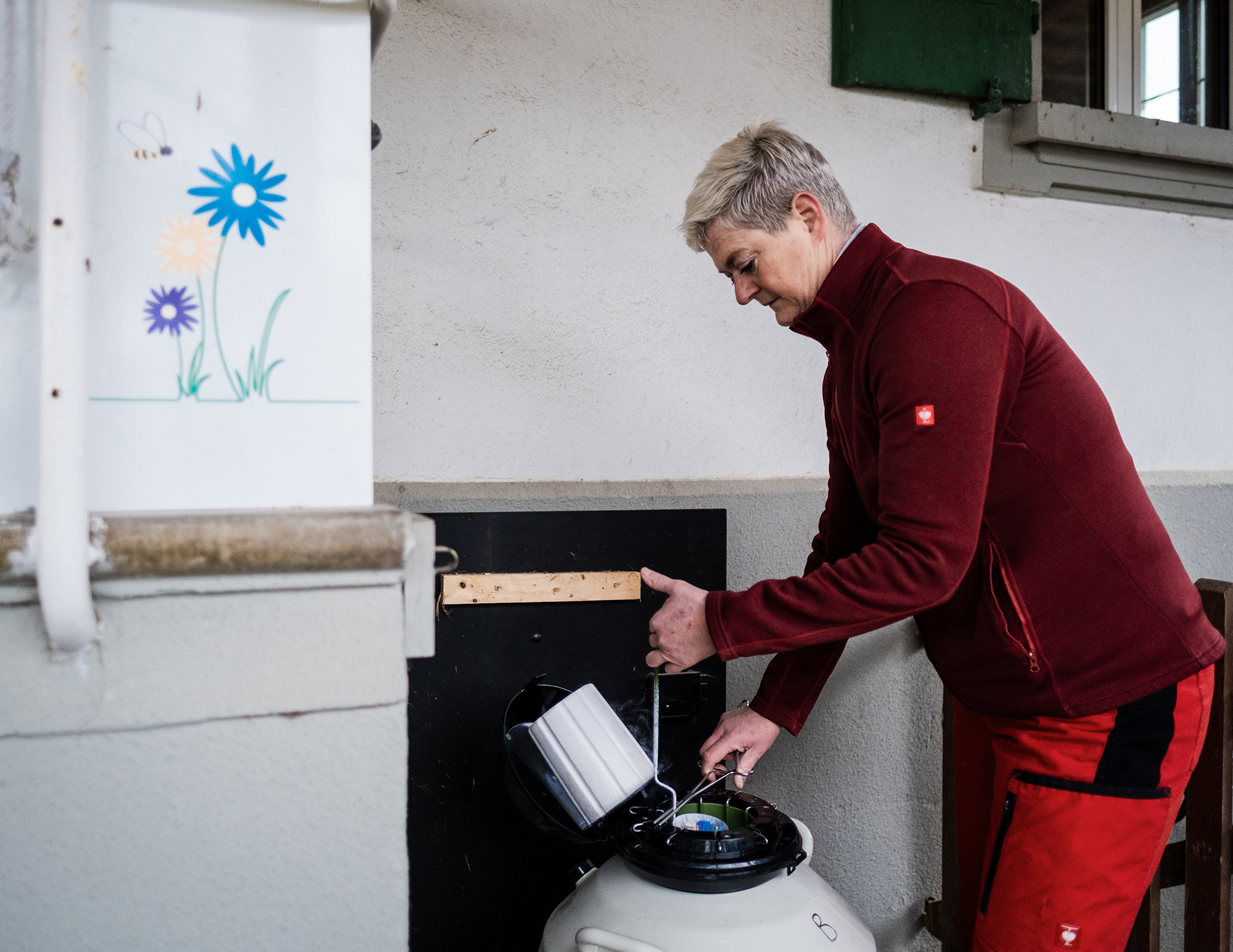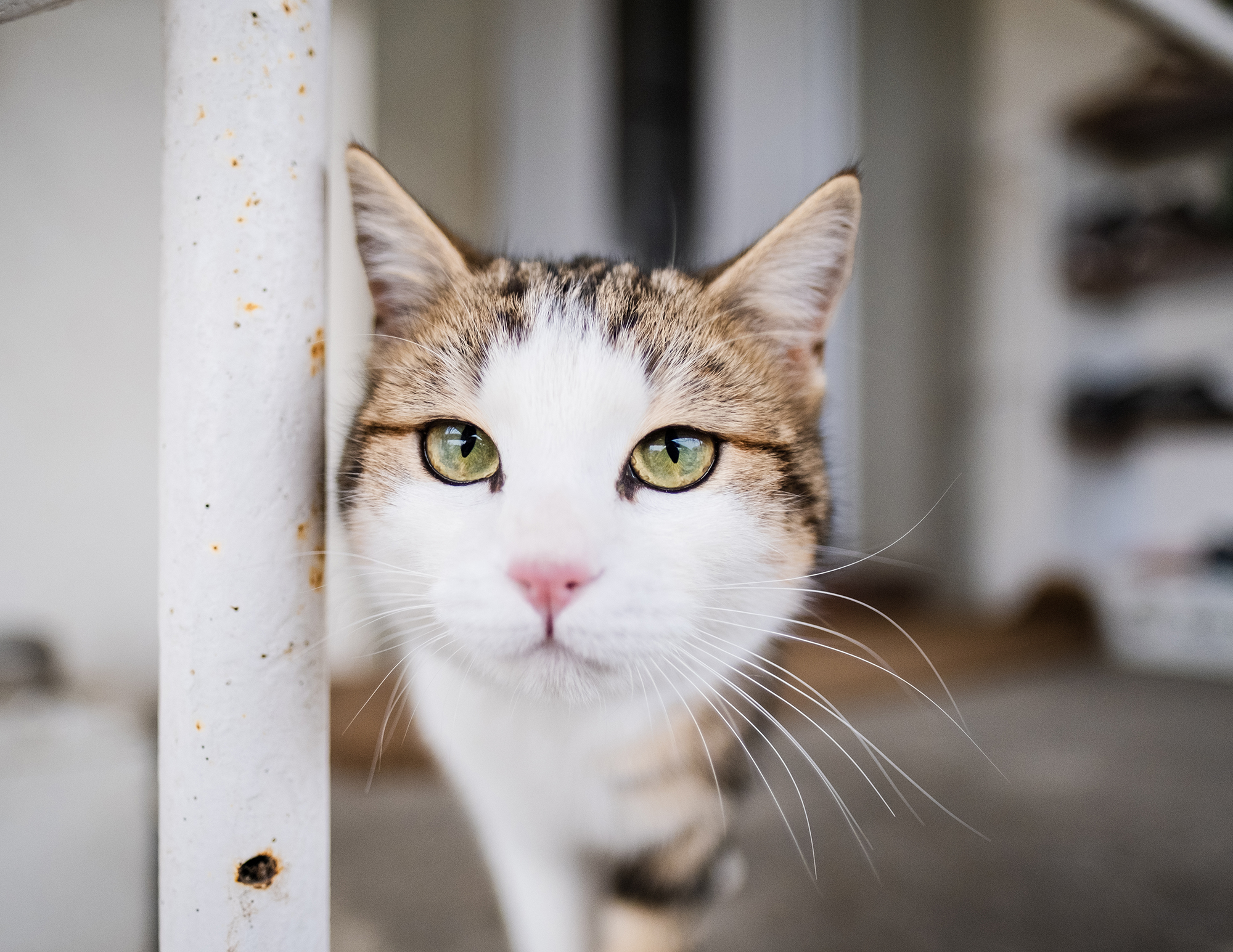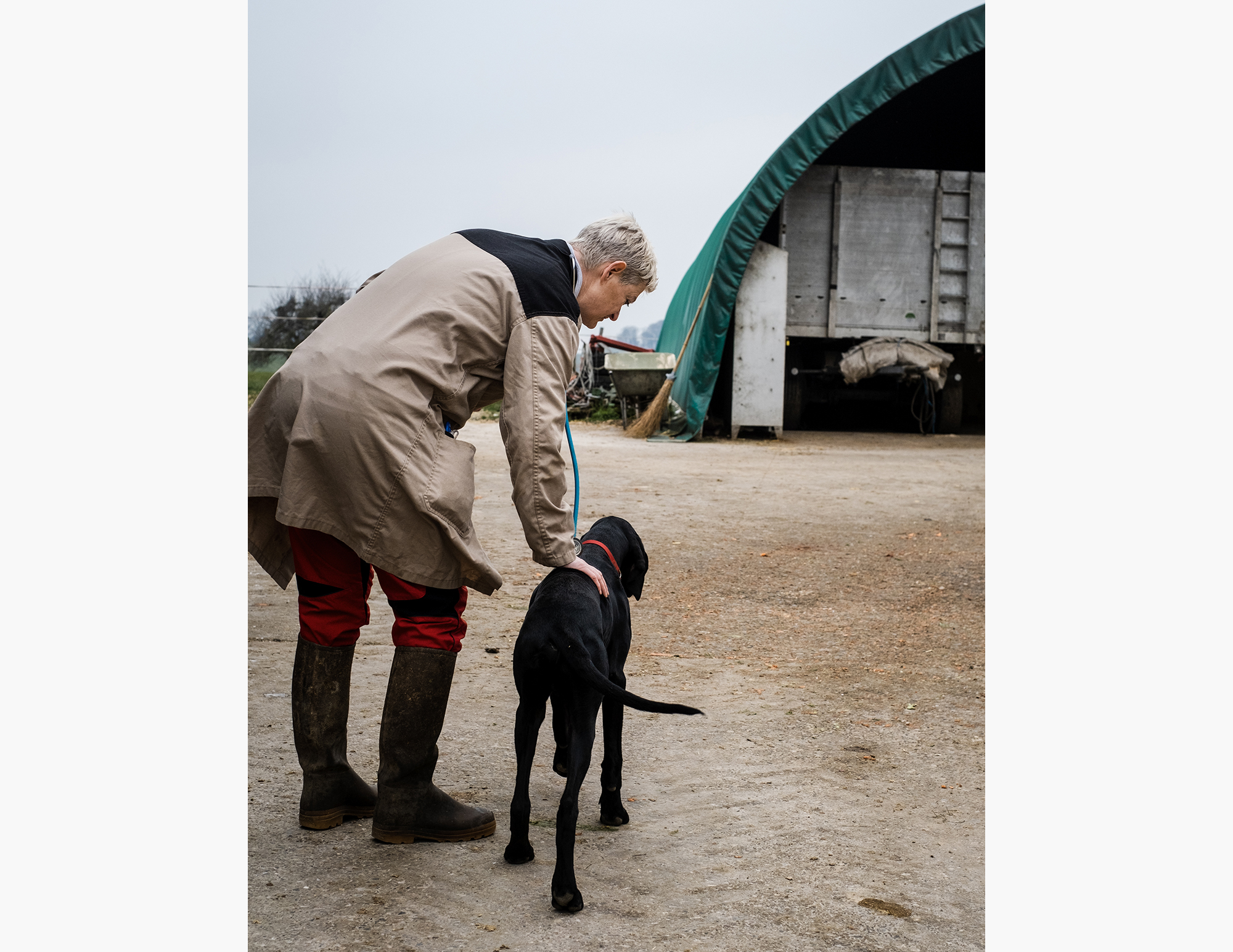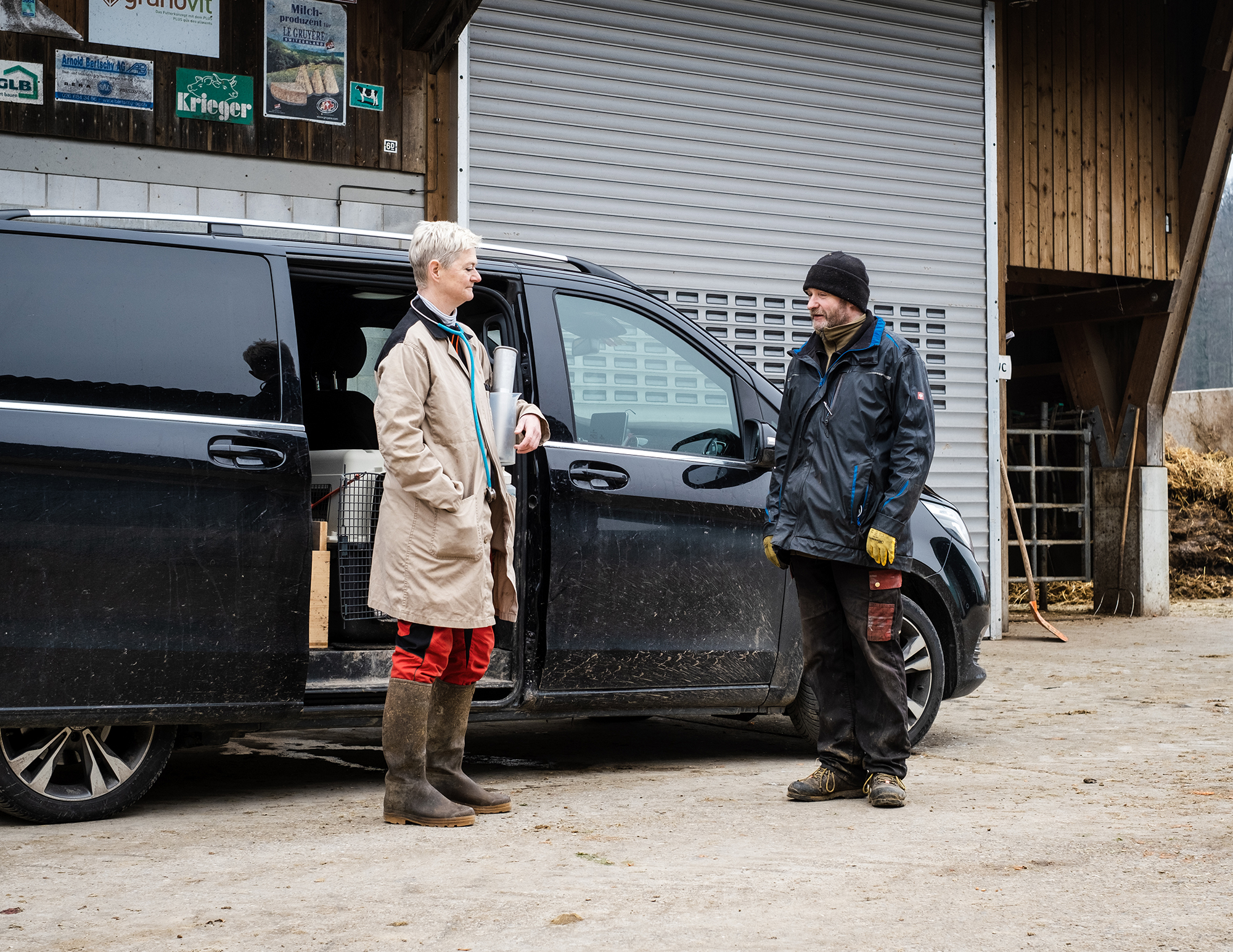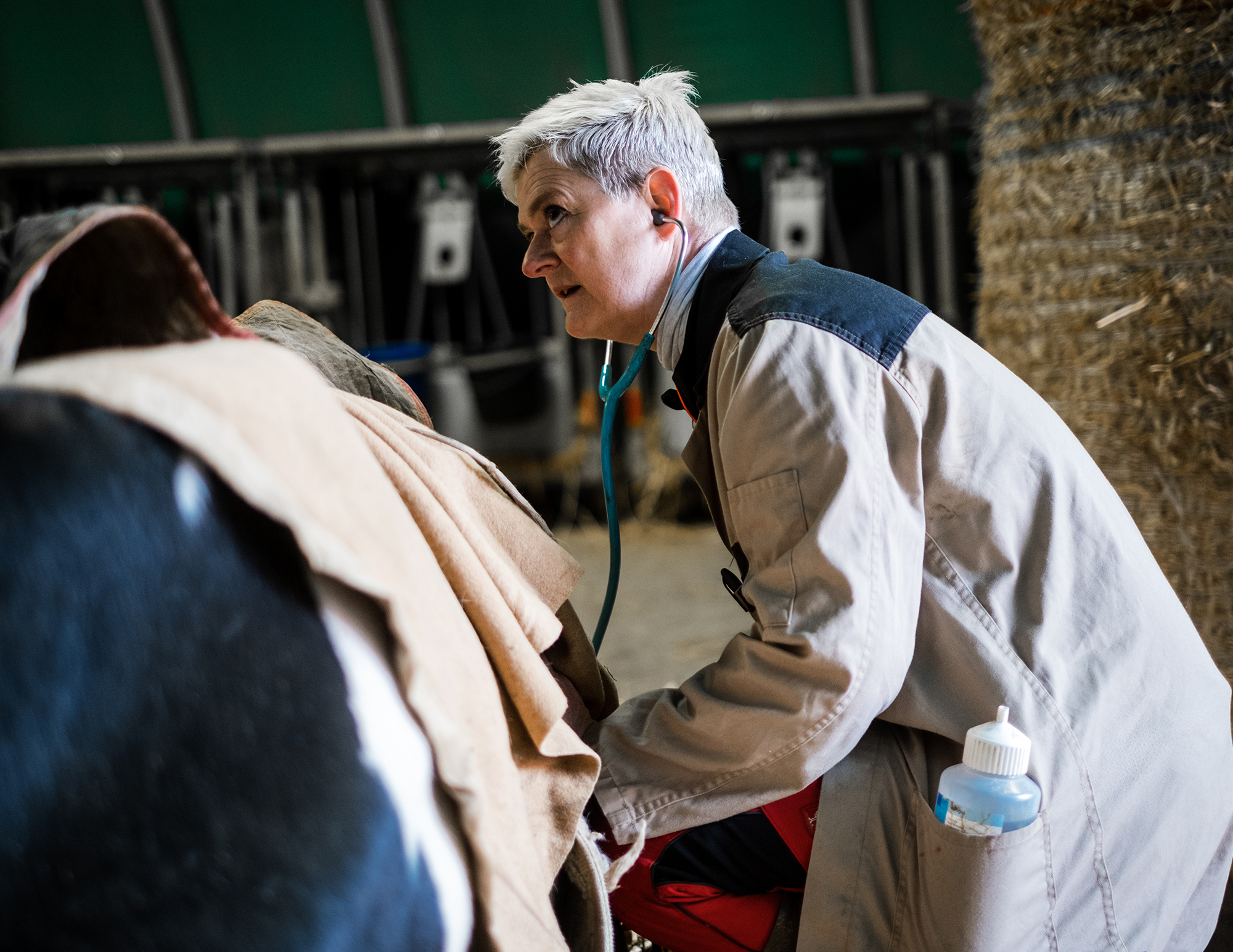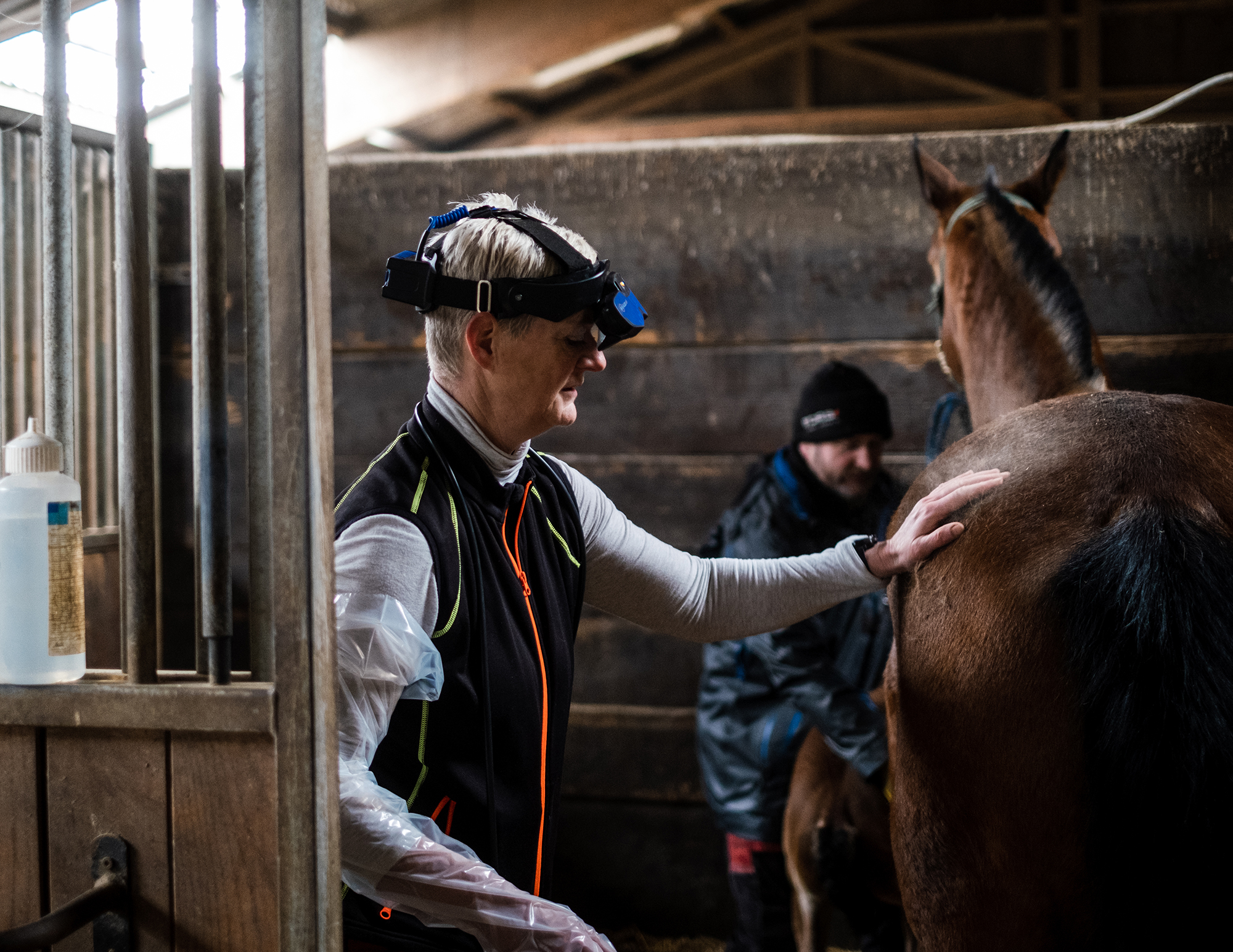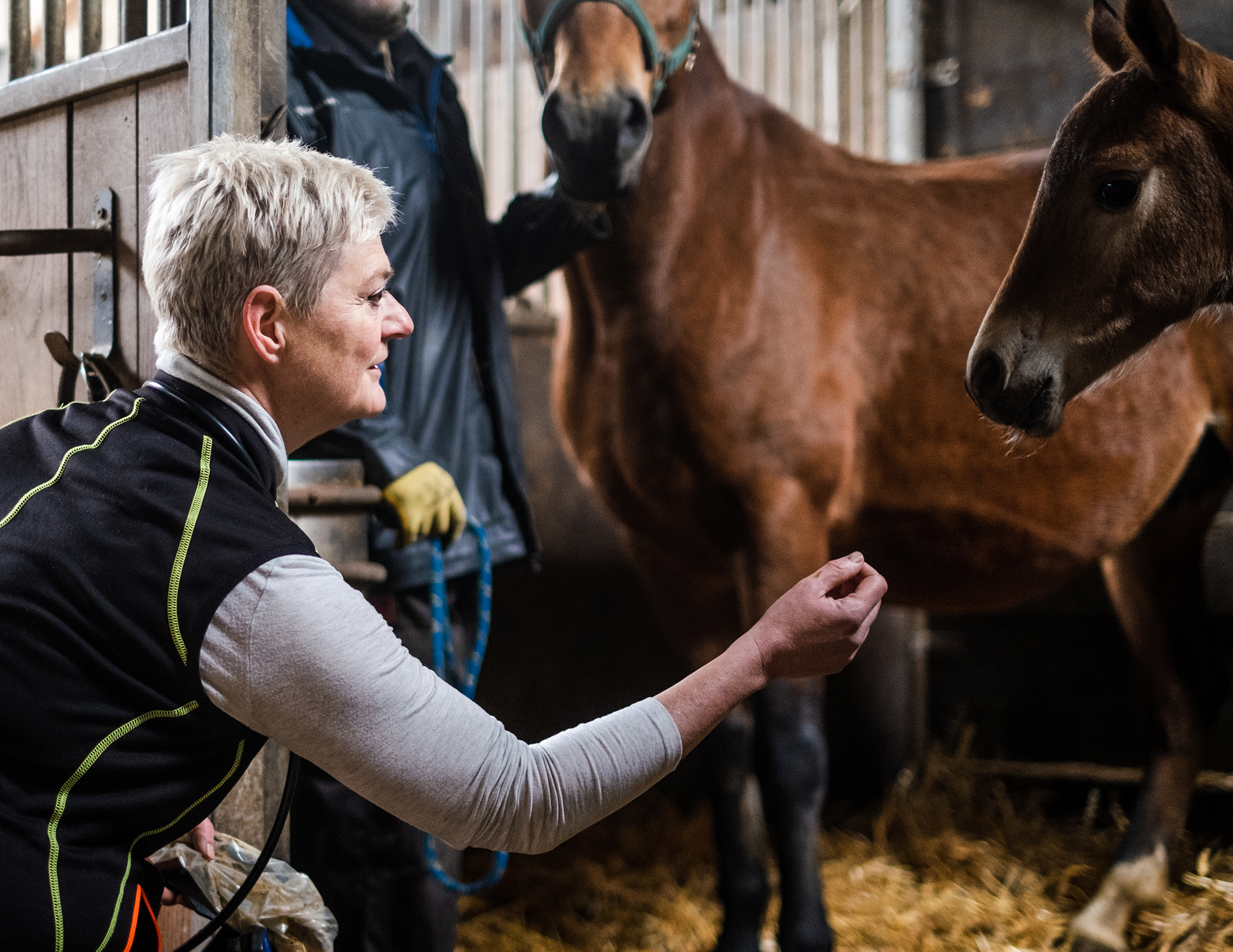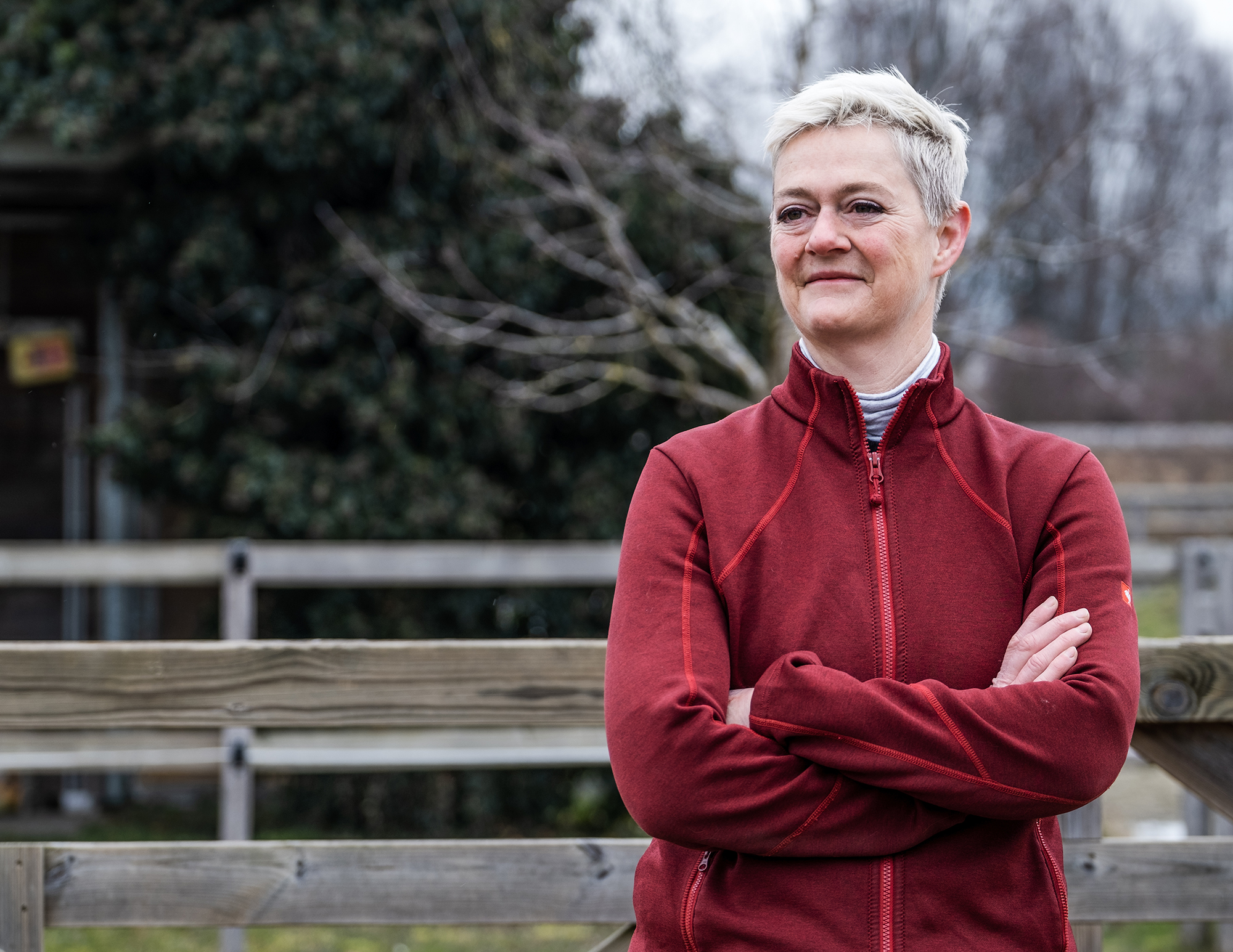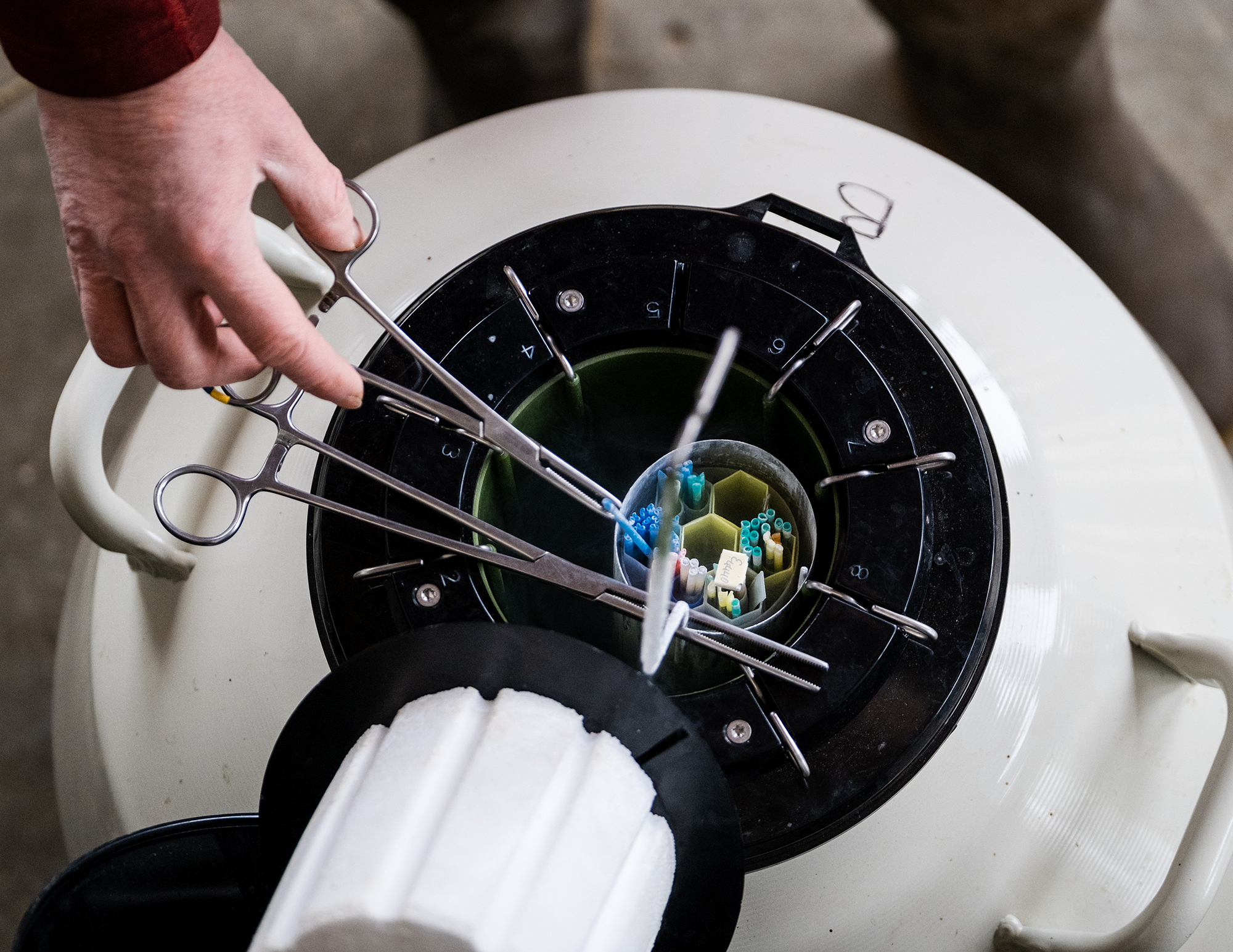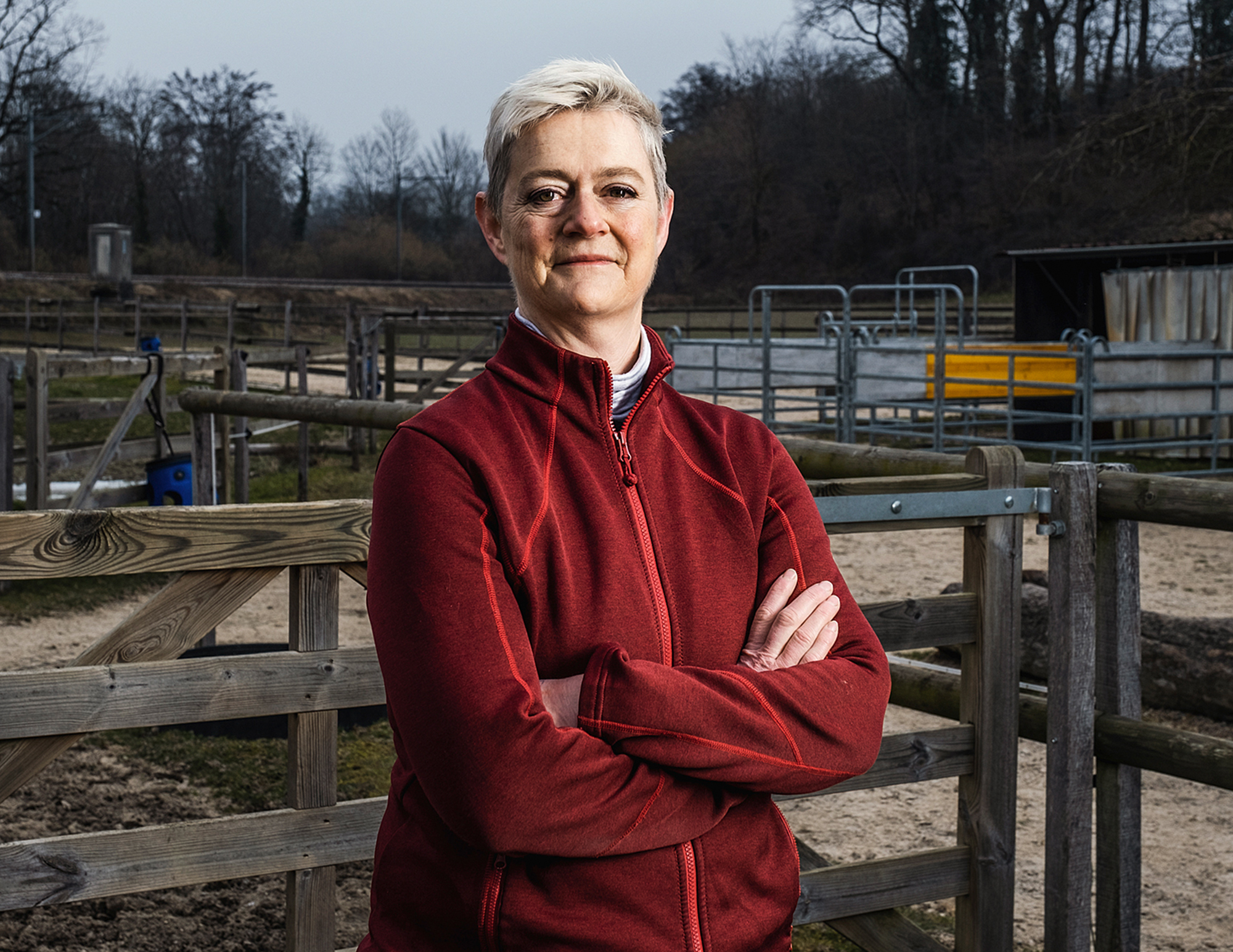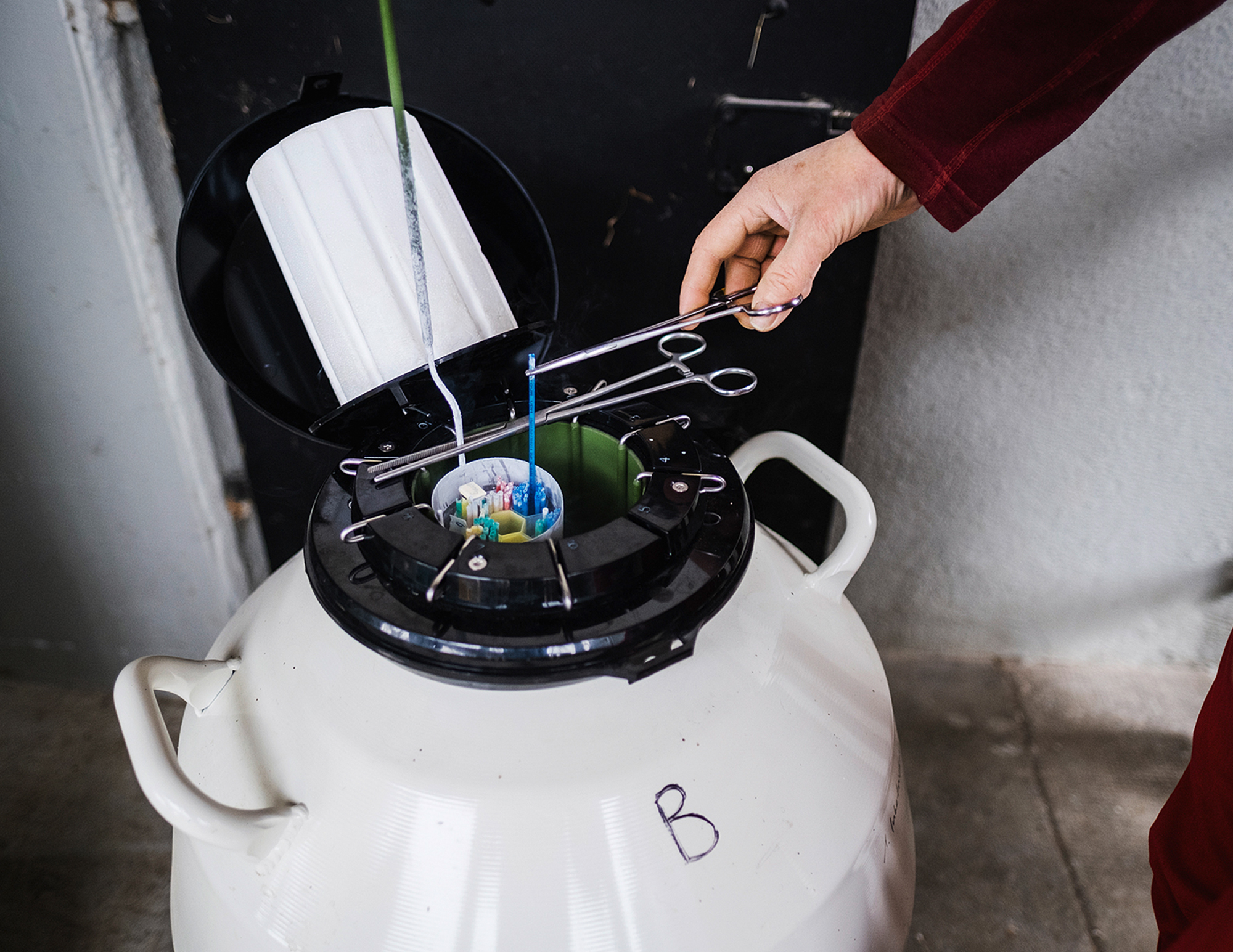In the middle of nowhere
Corcelles is located in the northern corner of Vaud, on the border of the enclave on the south bank of Lake Murten. Agriculture predominates in the Broye valley. Animals are everywhere and at home in this village idyll. Slightly off the beaten track and almost under a road bridge live Barbara Knutti and her husband. On our arrival, the vet is still fussing around her dog Loki. "He's only 5 months old and very playful – I'm still training him", she smiles. Originally from Biel/Bienne, she grew up with animals ("My father was a hunter") and feels very much at home in the Broye countryside. "We're close to everything that makes live worth living; the people here celebrate the live-and-let-live principle – that's fine by us", she relates in a relaxed manner. In Corcelles Barbara Knutti has managed a veterinary practice for the past 20 years. "At one point, four vets were working for me – now that my husband has retired, I'm cutting down on my workload and once again running my business as a one-woman operation."
Animals and love
Barbara Knutti did not become a vet by chance. "I knew that's what I wanted to be when I was six years old", she smiles. Today, she specialises in the field of gynaecology, and has continued her professional development accordingly. "Each year I attend international congresses – in 2020 subjects ranged from the reproduction of snakes, via poultry to hippopotami. I was particularly interested in the retrieval of egg cells from horses and cattle." One of the most important discoveries made by Barbara Knutti: "In veterinary medicine, it's not just about the animal – the human aspect also has to be considered. We always work on behalf of the animal owner. When dealing with livestock, this means that our work affects the economic situation of the owner. With a pet, it's the emotional value that the animal has for the owner that's important. And ultimately we have an ethical obligation to the animal. A love of animals on its own is not enough to become a vet." For Knutti, her job is a vocation: "I've experienced a lot and had insights into many things. Both empathy and detachment are required at the same time. That's what really fascinates me." And "Veterinary medicines are my bread and butter – I think that we should all approach the use of drugs very responsibly."
Focused and wide-ranging
The VMEC is an expert committee comprised of professionals with know-how from as many specialist areas as possible. Each member is appointed for a four-year term of office. It has to comply with the legal requirements and to cover all specialist areas. “That includes, for example, some very unusual subjects such as the anaesthesia of rodents or poultry, specific bacteria or the life cycles of parasites", explains the VMEC Chair.
